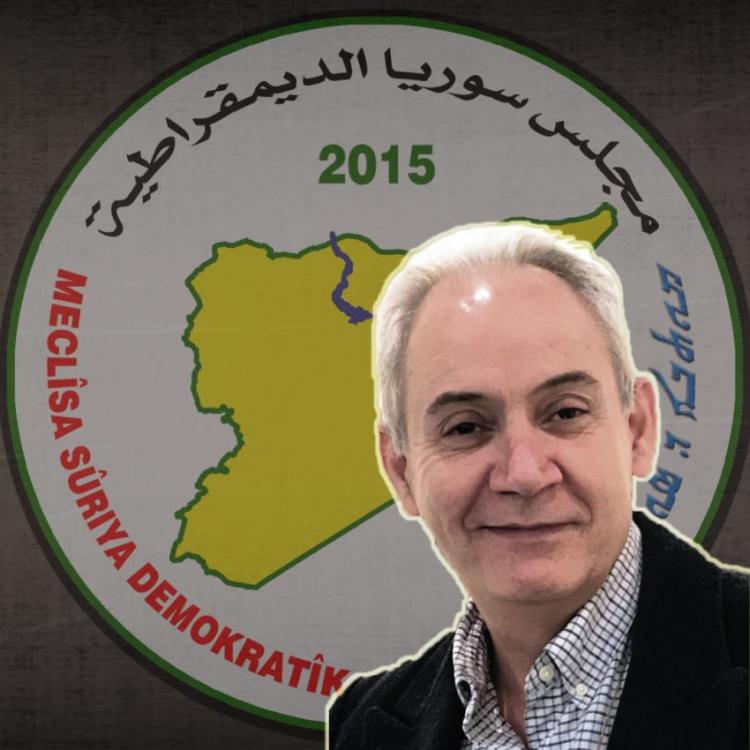Syrian Democratic Council (SDC) has secular, democratic, and humanitarian goals: SDC Representative in US
A prominent Syrian Alawite politician praised the Syrian Democratic Council (SDC), political arm of the US-backed, Kurdish-led Syrian Democratic Forces (SDF) in northeast Syria, in a special interview with North Press.
“The Syrian Democratic Council (SDC) is a Syrian national organization par excellence, and for all Syrians, and my aspirations have crossed considerably with its democratic, secular and humanitarian goals,” Bassam Saker, SDC representative to the US, told North Press when asked why he supports the Autonomous Administration in North and East Syria.
The Kurdish-led SDF holds around one third of Syrian territory, much of it liberated from the Islamic State (ISIS) with the help of the U.S.-led coalition. It is the biggest chunk of the country outside the control of Syrian President Bashar Assad’s government.
When asked how the Alawite community, of which Saker is a part, felt about the Syrian government and Assad family, Saker clarified that “Alawites are firstly Syrian citizens, among whom are loyalists and among whom are opposition.”
“Just because the ruling family in Syria is Alawite does not mean that Alawites are by any means well-off in Syrian society,” he added.
“Nobody cares about [the Alawites],” Saker stated. “Many villages live in poverty. There are 100% Alawite villages in Latakia with no electricity; villages where the water only comes once a week.”
He further explained that the Alawites, like other Syrians, are harmed by the Caesar Act. “Their suffering from the economic crisis is very severe, especially before the [Caesar Act] takes effect, and like the rest of the Syrians [they] are threatened by the increase in poverty, unemployment and hunger,” he said.
“The unemployment and poverty rates [among Alawites] are very high,” he added.
Saker then told North Press that “the [Autonomous Administration] is good at solving their problems,” and that Turkish incursions in Syria are a threat to the harmony in the country, particularly where Kurds and Alawites are concerned.
“They are the worst threat in the area,” he added, pointing out that the Turkish military endangered the lives of civilians in the Hasakah region by cutting off water from the Alouk Water Station.
“There is a dialectical link between governance and decentralization to achieve sustainable development, human rights, equality, law enforcement and focus on transparency in information and the adoption of a system of accountability,” Saker told North Press when asked whether or not he sees a decentralized Syria as a solution to the crisis.
“I believe that it has become necessary to follow this path.”
The SDF is spearheaded by the Kurdish YPG military force, but has expanded beyond majority Kurdish parts of the north. Its territory now includes Raqqa city, the Islamic State’s former Syrian base of operations, and the eastern Deir ez-Zor province at the Iraqi border.
The SDF and its political arm, the SDC, want the Syrian conflict to end with a decentralized system that secures rights for minorities, including Kurds.
The SDF have mostly avoided conflict with Assad during the war, setting them apart from rebels in western Syria whose central goal was to topple the Assad regime. The SDF say they do not seek an independent state, but only to protect the autonomy of Syria’s northeast.
(Reporting by Lucas Chapman, Editing by Hisham Arafat)

